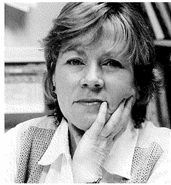How easy it is to forget to be thankful for suffering and weakness. We are so often more thankful for the good things, the comforts in life, things that go well. But the weaknesses and sorrows ought to be received with thankfulness, for the weaknesses point us to God, reminding us of how much we need God’s amazing and sufficient grace.
Paul wrote in 2 Cor. 12:5-10 that the thorn in his side reminded him of God’s grace. What was it that would remind him of his weakness and need for God?
Paul was caught up into Paradise and heard that which no mortal is permitted to repeat. He had reason to boast, but a thorn reminded him of his particular weakness. Perhaps that thorn was the painful awareness that he had killed Christians. Living with the horror that he had murdered, especially those who loved Christ, must have been a terrible sorrow, one Paul would live with the rest of his life.
In my own life, weakness and needs have been hard to recognize and acknowledge. Suffering just was not in the script, at least the script that I wrote. God has had a different script for me, however, one that includes suffering and sorrow and reminds me of the many ways I hold onto idolatries and false supports rather than seek His holy will.
Remember the journey of Much-Afraid (Hinds’ Feet on High Places by Hannah Hurnard) as she faced her fears and began to follow the great shepherd. The first step in her journey, however, required her to take the hands of her companions, Sorrow and Suffering. Only as she journeyed with these companions would she be transformed, able to receive a new name along with the feet that would enable her to prance on the mountain with the shepherd. Through many trials and travails, Much-Afraid received new feet and a new name, Grace and Glory. Sorrow became Joy, and Suffering became Peace. How many of us look for our new names as we enter our journeys? In Rev. 2:17b, God says, “To everyone who conquers I will give some of the hidden manna, and I will give a white stone, and on the white stone is written a new name that no one knows except the one who receives it.”
One final thought comes from Henri Nouwen’s book, The Inner Voice of Love:
“The situation which brought about your pain was simply the form in which you came in touch with the human condition of suffering. Your pain is the concrete way in which you participate in the pain of humanity.
Paradoxically, therefore, healing means moving from your pain to the pain. When you keep focusing on the specific circumstances of your pain, you easily become angry, resentful, and even vindictive. You are inclined to do something about the externals of your pain in order to relieve it…But real healing comes from realizing that your own particular pain is a share in the humanity’s pain. That realization allows you to forgive your enemies and enter into a truly compassionate life.”
As I journey through this life, I hope to receive sorrows and suffering with greater thanksgiving, participating in the pain of humanity while awaiting my new name as I continue to look to God for His sufficient grace.
———-
Twenty years ago, the Wheaton Alumni magazine began a series of articles, titled “On My Mind”, in which Wheaton faculty told about their thinking, their research, or their favorite books and people. Current Associate Professor of Psychology, Cynthia Neal Kimball (on faculty since 1990) was featured in the Winter 1999 issue.
The following statement was included at the time of publication:
Dr. Cynthia Jones Neal, chair of Wheaton’s psychology department, has been at the college since 1990. She received bachelor’s, master’s and doctoral degrees from the University of New Mexico. Her work has been published in several professional journals, including Personality and Social Psychology, and Merrill-Palmer Quarterly. She also co-authored chapters in Vygotsky and Education and A New Vision for Welfare Reform and Nurture That Is Christian: Developmental Perspectives on Christian Education. Dr. Neal received Wheaton’s Junior Teacher of the Year Award in 1990.
